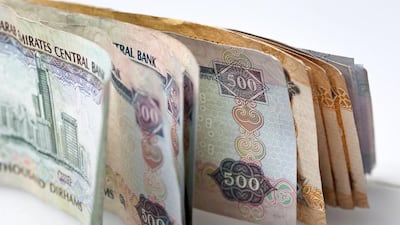Working in the UAE can come with a higher salary than an expat would earn in their home country. But managing that money effectively is key to justifying why an individual chooses to work away from their the nation of their citizenship. Here, in the latest in my series on managing your money while working in the UAE, I reveal five planning tips to help workers retain a financial balance:
1. Evaluate your insurance
Employers provide medical cover but this can sometimes be a very basic policy. Check your policy to see what it covers and if it is not adequate for your specific health needs, top it up. You do not want to be caught out with big medical bills and an inability to pay them; this can negate the reasons for being in the country in the first place. This can be particularly relevant for someone with a policy that does not include maternity cover. Also the life assurance you had in place, either with a previous employer in your homeland or with previous company pension schemes, may not be valid while living in the UAE. Ensure this is set up correctly either by your employer or by taking out individual cover.
2. Pay yourself first
The majority of employers here do not pay into any form of savings or retirement plan for their staff besides the gratuity payment. In my experience when a staff member has approached an employer about this, they are often happy to do so. If you are lucky enough to gain this type of investment from your employer, then it makes sense to select the appropriate regular savings investment vehicle and increase the contribution from the employer. If you are not saving via your employer then look at saving a portion of your monthly income before you start to spend it all. Everyone should be saving a regular amount in lieu of a pension scheme in their home country. Whether this is into a structured investment or into cash until invested in lump sums, forced monthly savings should be made and compounded to provide a nest egg for future financial milestones.
3. Address future taxation
As a non-resident of your home country you still need to plan for taxation events, and the earlier you do this the better. Certain employers will offer company shares as part of their remuneration package, but if cashed in when you are living at home they will be taxed from the original value. It is better to have a tax plan in place as soon as possible, as cashing in assets at the right time and ensuring you minimise the tax payable on these assets is key. Formulating a tax plan will provide an understanding of what needs to be done and when to do it. Items on this list can be setting up trusts, gifting assets, transferring pensions overseas and making overseas investment arrangements. There are nearly always specified time periods that have to be met when planning taxes, such as living a certain length of time before gifted assets become free of inheritance tax. Once dates are in the diary related to when arrangements were made, this sets off the timer in your tax planning and is a reference date for future calculations.
4. Review your existing assets/investments
As an expat, your position will have changed from wherever you were previously. This will create the perfect opportunity for a complete financial health check and may mean that assets need changing in relation to your new position. You will have different currency needs than before. You may be holding property that you no longer need or want to own. Moving abroad may have also changed your long-term plans and you may be considering moving elsewhere in the world. Managing assets in different parts of the world can be hard, so it is best to review and consolidate inefficient positions that are costing time and performance.
5. Rebalance regularly
Rebalancing an investment portfolio annually more than doubles the return over a 20-year period, according to a study by JP Morgan. Global markets are currently being challenged and governments are testing new boundaries with how to run economies effectively. What is good one month can often be bad the next, so paying close attention to your finances is a good idea. Most people do not run the majority of their investment portfolios themselves but they need to ensure that whoever does it for them is fluent in the language of rebalancing.
Chris Ferguson is the chief executive of Credence International, a financial planning and wealth management company based in Dubai
business@thenational.ae
Follow The National's Business section on Twitter

